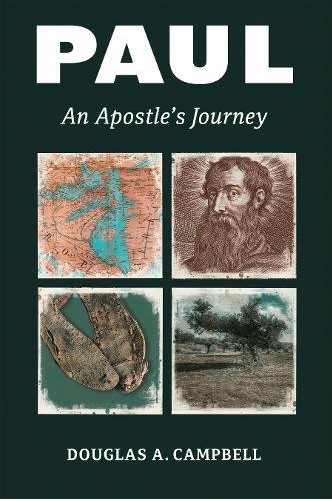 Paul gets bashed a bit these days as more and more Christians realize the anchor of their faith is Jesus. But all orthodox Christian faith is at the same time rooted in the biblical witness and not just historical methods. Biblical faith deals with Paul because Paul’s letters — thirteen of them in traditional counting — not only take up lots of pages in your New Testament but his mission and message shaped 1st Century Christianity at deep levels.
Paul gets bashed a bit these days as more and more Christians realize the anchor of their faith is Jesus. But all orthodox Christian faith is at the same time rooted in the biblical witness and not just historical methods. Biblical faith deals with Paul because Paul’s letters — thirteen of them in traditional counting — not only take up lots of pages in your New Testament but his mission and message shaped 1st Century Christianity at deep levels.
Which of these readings of Paul do you think is most like Paul, or most accurate? Why do you think Paul has “fallen out of favor” with so many today? Why do you think others make Paul so central, even more central than Jesus/Gospels?
Biblical faith, then, deals with Paul. Careful readers of Paul’s letters know that there are some major, major disagreements over how to interpret Paul. So the question is not Jesus have I loved, Paul have I known, but which Paul? Last week we sketched the 1st chp in Michael Bird’s edited volume, The Apostle Paul, another Zondervan Counterpoints book. That chp represents a Reformed, or Calvinist, reading of Paul. Today we look at Luke Timothy Johnson’s study of Paul. Three quick facts: Johnson is Catholic; he is one of the most prolific and significant NT scholars; his sketch of Paul may be Catholic but it shows that when it comes Catholicism, Paul’s letters are not the primary source for creating Catholic distinctives. So, in the end, this is the historian’s Paul, the Paul who emerges from the canonical letters who also thinks — contra many in the academic guild — Paul wrote all thirteen letters.
1. Too many of those who sketch Paul’s theology limit the evidence: he was not a systematic thinker; each letter emerges in context and in contact with issues at hand for his mission; there was a school around Paul; Paul prefers personal relationship and communication.
2. Those who find a “center” in Pauline theology are mistaken, and here he pushes against finding it in Epicureanism, Stoicism, Palestinian Judaism, or apocalyptic — or his struggle with the law or the narrative theology of the new perspective. If we consider all letters, we don’t have a center but themes of a missional apostle.
3. Johnson thinks we have to find the matrix of personal religious experience, the religious experience of his readers, and the compex of traditions and practices already in play at the time of Paul.
4. Christology: an exceptional sketch of Paul’s christology, focusing not so much on Christ as on Lord but it all begins with the resurrection. Holy Spirit is prominent in this sketch. Jesus’ resurrection was an eschatological event. Jesus has representative significance.
5. Cross: a scandal for the Jews; supreme sign that God did not spare his Son, was a sacrifice for sin; an expression as well of Jesus’ faith in God and love for others. It is about his faithful obedience. And the cross is a pattern for human behavior: cruciformity.
6. Salvation: it is accomplished by God and it is not about the accidents of life but basic existential existence; his death was not primarily liberation from systemic powers but from sin and sinfulness. Nanos’ response pokes Johnson for inconsistency here since the remaining portions of this chp seem to move in a more social, if not political, direction. He’s not a proponent of the empire theorists today. Salvation does not just rescue but transforms. The language of salvation explores five different metaphors, none of which is sufficient but each of which is adequate and pointing us to the fuller realities of salvation: diplomatic, economic, forensic, cultic, kinship. He sees an inaugurated salvation: here and not fully complete yet. But salvation is social in that it ushers people into the new community. Schreiner’s response calls out Johnson for a lack of attention to the grace of God and to the importance of faith for justification and to Johnson’s emphasis on corporate (not individual) election.
7. Church: the local assembly; mostly Gentile churches; sketches leadership in elders and superintendents and servants… more than a voluntary association but derives from the call of God. Paul dealt with boundaries over against both Gentile/Roman world and Jewish world. Jewish believers follow Torah; Gentiles believers need not. Paul had egalitarian ideas that crashed at times against social realities, and Douglas Campbell thinks Johnson needs to work more on this element of his chp as Campbell thinks the social tensions arise in the non-Pauline letters.
Surprisingly, hardly a thing on eucharist or baptism.











